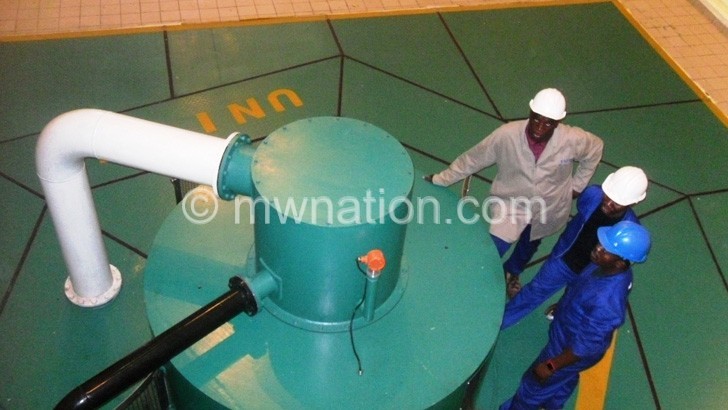Committee protests Escom borrowing
Parliament’s Budget and Finance Committee has vowed to block State power utility Electricity Supply Corporation of Malawi (Escom) from borrowing K30 billion from commercial banks to finance its K55 billion deficit after Treasury earlier rejected its bailout request.
In a telephone interview yesterday, committee chairperson Rhino Chiphiko said his committee told Escom top management on Tuesday that it will recommend to government not to guarantee the K30 billion loan the parastatal is seeking.

The committee learnt on Tuesday that Escom—already mired in financial liabilities in excess of K80 billion with local and foreign institutions—plans to raise the remaining K25 billion from a proposed tariff hike which the Malawi Energy Regulatory Authority (Mera) is yet to approve.
But Chiphiko said his committee admonished Escom for what he termed “wanton misprocurement and corruption” which was draining the company’s resources.
He said: “The major problem with Escom is misprocurement and flourishing of corruption. With the use of [diesel-powered] generators, the company is spending a lot of money on buying fuel. We told them if they want to borrow money they should not expect government to guarantee it because we will not allow that to happen.
“Banks will have to assess them if they have the capacity to service their debts. Our stand on the proposed hike of tariffs is also big ‘No’. We will block any moves to pass on their liabilities to the public.”
Chiphiko also faulted Escom for maintaining a part of power generation responsibilities through Aggreko, which is running the diesel-powered generators.
He said the committee believes that if Escom collected all its debt, in excess of K20 billion of which K16 billion is owed by the private sector and K4 billion by government ministries, departments and agencies (MDAs), the borrowing would not be necessary.
Reacting to Escom’s proposal yesterday, Consumers Association of Malawi (Cama) and Malawi Economic Justice Network (Mejn) objected to the move while the Institute for Chartered Accountants in Malawi (Icam) backed the plan, saying it is critical to rescue Escom from going under.
In a separate interview, Mejn executive director Dalitso Kubalasa asked Mera and government to keep the power utility on a short leash.
He said: “There is a lot of serious and unfinished business hinging on gross inefficiencies and serious lack of accountability in Escom that have already proven costly. We cannot and should not attempt to sweep such collateral damage on the economy under the carpet.”
Cama executive director John Kapito commended the Budget and Finance Committee stand on the matter, urging further restructuring of Escom.
He said: “We wonder why Escom should struggle with debts like this when this should not have been the case. Escom should not get any money because they do not deserve such. They are busy abusing resources at every opportunity.”
But in an e-mailed response, Icam chief executive officer Francis Chinjoka Gondwe said the loans Escom was seeking would help it crawl back to financial stability.
He said: “The loans are very sustainable as Escom will be able to finance both interest and capital easily over the period. Escom is optimistic to turn a full corner in 12 to 18 months. What Escom is doing is what will keep it afloat; refinancing, cost-reflective tariffs, cost reduction and containment measures, enhance capacity in the company.”
Escom chief executive officer Allexon Chiwaya told the Budget and Finance Committee of Parliament on Tuesday that Escom expects to repay the K30 billion it seeks to borrow from commercial banks over a period of five years at the rate of K800 million per month. He said the repayment schedule was affordable.
Basic calculations show that at the rate of K800 million per month, over a period of five years or 60 months, Escom will have paid the banks an equivalent of K48 billion.
In the financial year ending June 30 2018, Escom made an K8 billion loss after making a K6 billion profit in the 2016/17 fiscal year.
Escom has attributed the loss of billions to the unbundling of the parastatal to form Electricity Generation Company (Egenco) in 2017 as an independent power producer. The unbundling meant that Escom entered into a power purchasing agreement with Egenco at tariffs which Mera approved.
As of July, Escom owed about K28 billion to Egenco, K2.7 billion to Mera and K40 billion to various suppliers, local and international.





